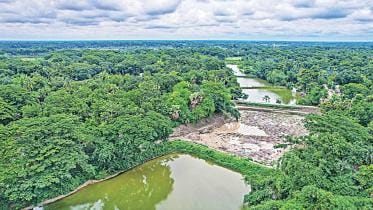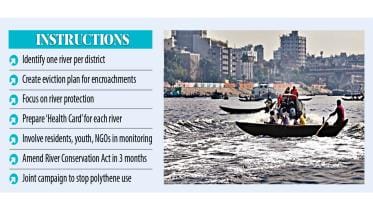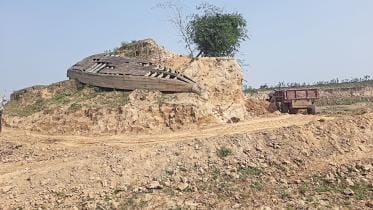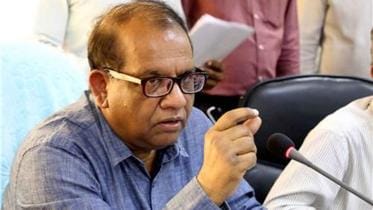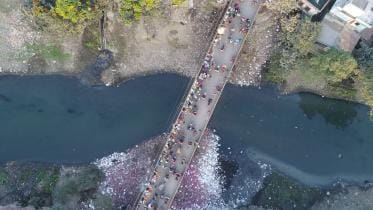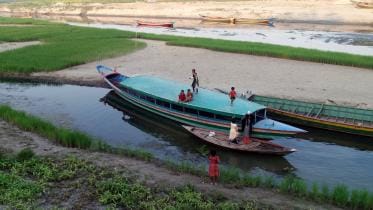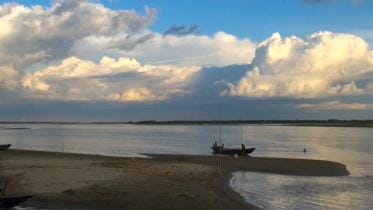rivers in Bangladesh
No river, no dream
Kazi Khaleed Ashraf (KKA): River-realm or river-sphere, or, in a technical sense, river ecology, has been a recurring topic in our many conversations.
15 January 2026, 00:00 AM
Fail to save rivers, and we fail to save ourselves
Our country is a riverine land. Rivers are deeply intertwined with the very formation of this land. Yet, even today, the definition of a river has not been finalised in Bangladesh.
15 January 2026, 00:00 AM
Take urgent steps to reactivate the river commission
Why has it not been done over the past five months?
24 January 2025, 05:33 AM
Waterways must not be crime hotspots
Ensure justice and a fair probe into the seven-murder tragedy
25 December 2024, 19:38 PM
Prepare, publish list of rivers within 2 months
Syeda Rizwana Hasan, adviser to the environment and water resources ministries, yesterday instructed the Bangladesh Water Development Board, BIWTA, National River Conservation Commission, and Divisional Commissioners to finalise the total number of rivers in the country within two months.
5 September 2024, 18:00 PM
Rivers in fiction: A unique genre of Bengali literature
With hundreds of waterways spread all over the country like a spider’s web, it’s only natural that rivers play a notable part in our lives. There are numerous novels focused on our riverine traditions, enough to call it a genre by itself.
19 February 2024, 08:34 AM
Make protecting our rivers a top priority
The government must make the best use of the river route classification initiative.
16 February 2024, 15:00 PM
As our rivers lay dying
Rivers don’t live anymore, they merely exist. They exist as relics of their halcyon days when rivers were truly wild, mysterious, free -- or as a character in their own story, as told through poetry and music.
31 January 2024, 18:00 PM
Our rivers are being robbed
Why is the law to stop illegal sand extraction not enforced?
24 September 2023, 11:58 AM
37,000 River Grabbers: NRCC decision to withhold names draws flak
The National River Conservation Commission has decided not to publish a list of 37,000 new encroachers of 48 rivers and the environment activists say protecting their identities is tantamount to siding with the grabbers.
19 January 2023, 01:40 AM
Dried-up Teesta continues to haunt farmers
Bangladesh needs to find a realistic solution to a persistent problem
6 January 2023, 18:07 PM
The sorry state of rivers in Bangladesh
There used to be more than a thousand rivers crisscrossing through Bangladesh. Many of those rivers are now lost, mostly due to human interventions.
27 September 2022, 14:00 PM
Can we reimagine rivers before it is too late?
It is a tragic irony that riverine Bangladesh has become the land of dying rivers.
24 September 2022, 19:30 PM
An invaluable resource on char dwellers of deltaic Bangladesh
In the contemporary discourse on Bangladesh, its cultural legacies have overtaken its identity as a land of six seasons or as a riverine country.
27 April 2022, 18:00 PM
The Story of Teesta
The Teesta River, originating in the Himalayas, travels a long way through the mountains and plain land before reaching Bangladesh.
17 August 2019, 12:36 PM




